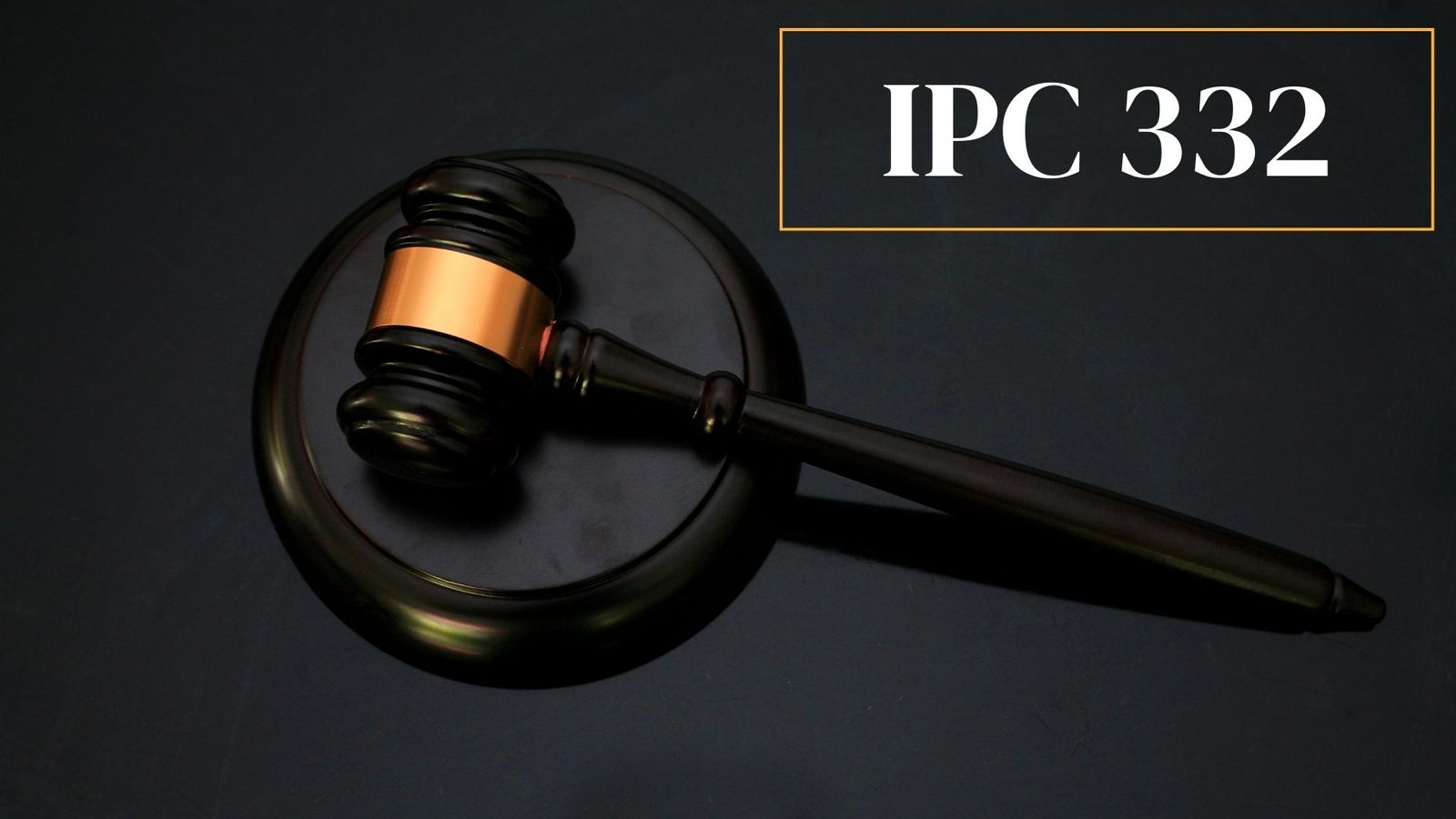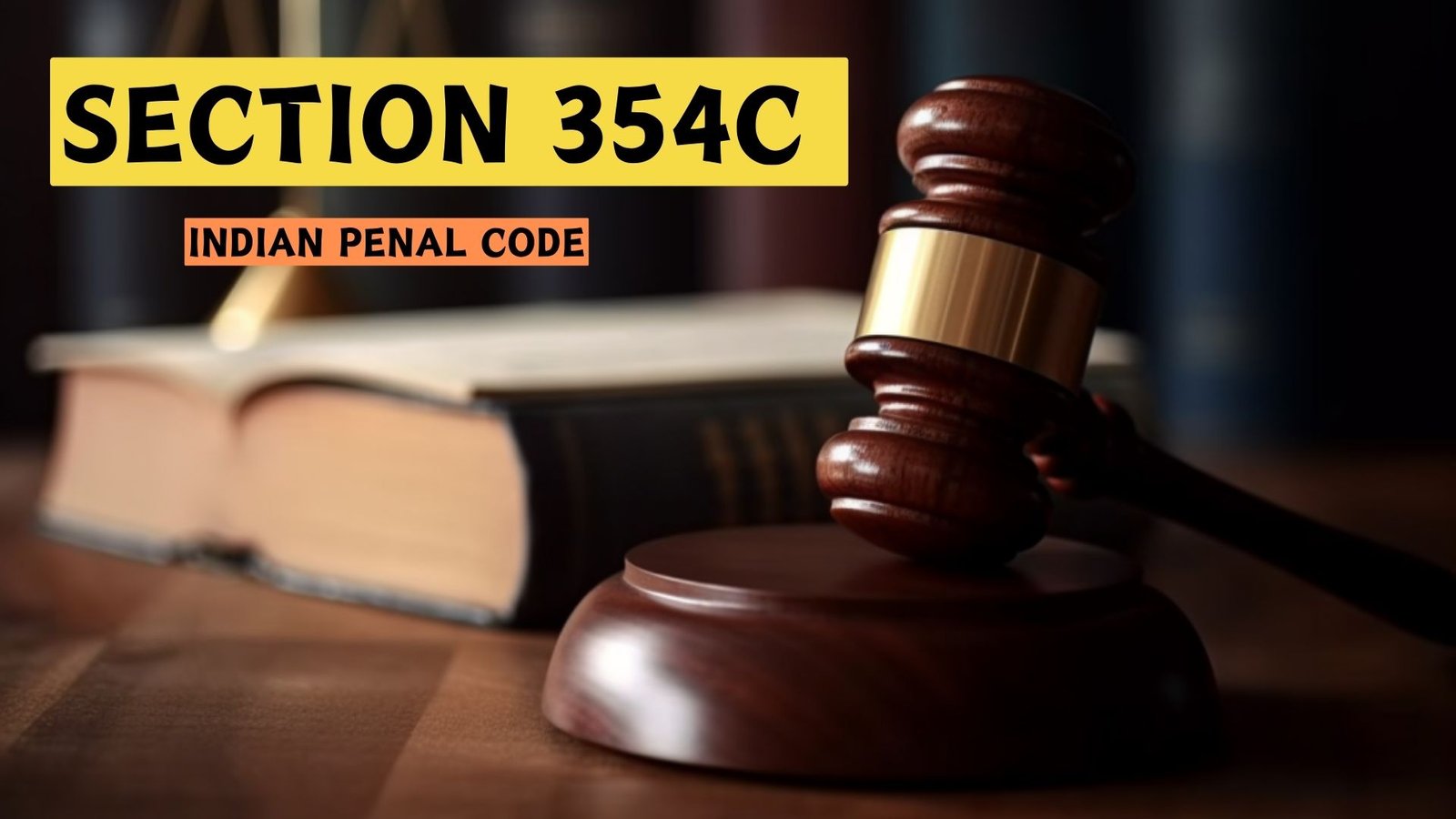On this page you will read detailed information about Section 332 IPC.
Introduction to Section 332 IPC
The Indian Penal Code (IPC) is a comprehensive legislation that governs criminal law in India. Within this expansive framework, Section 332 holds particular significance when it comes to safeguarding public servants. This article aims to provide an in-depth analysis of IPC Section 332, exploring its historical background, elements, punishments, and controversies. By understanding this crucial section of Indian law, we can gain insight into the measures in place to protect those who dedicate their lives to public service.
Understanding the Significance of IPC Section 332 in Indian Law
IPC Section 332 addresses the assault or use of force to deter a public servant from discharging their duty. Public servants play a vital role in the functioning of society, ensuring the smooth execution of administrative tasks and the delivery of essential services. However, they often face threats, intimidation, and physical harm in the line of duty. IPC Section 332 acts as a deterrent and provides legal recourse to protect these individuals from harm.
Historical Background and Evolution of Section 332 IPC
The roots of IPC Section 332 can be traced back to the colonial era. During the British Raj, the Indian Penal Code was enacted in 1860 to consolidate criminal laws across British India. The inclusion of Section 332 was a response to the need for protecting public servants who faced resistance from the local population during the implementation of colonial policies.
Over the years, IPC Section 332 has undergone several amendments to cater to changing societal dynamics and legal requirements. These amendments have expanded the scope of the section and provided additional safeguards for public servants. The evolution of Section 332 reflects the commitment of Indian lawmakers to ensure the safety and security of those serving the public.
Elements of Section 332 IPC – Assault or Use of Force to Deter a Public Servant from Discharging Duty
IPC Section 332 encompasses various elements that define the offense. Firstly, it covers the act of assault, which includes physical violence, intimidation, or threats. This assault must be directed towards a public servant, who could be a police officer, government official, or any person entrusted with public duty. The crucial aspect is that the assault or use of force must be conducted with the intention to deter the public servant from discharging their duty.
To establish guilt under IPC Section 332, it is essential to prove the presence of intention to prevent the public servant from performing their lawful duty. This intention is a key element in distinguishing a simple assault from an offense under Section 332. The section places a high premium on the protection of public servants and acts as a deterrent against any attempts to obstruct their work.
In the previous post, we had shared information about Protecting Employees And Ensuring Compliance: Exploring The Impact Of Labour Law On Layoff Practices, so read that post also.
Punishment and Penalties under IPC Section 332
The punishment for offenses under IPC Section 332 is severe to ensure the gravity of the offense is duly recognized. If convicted, the offender can face imprisonment for a term which may extend to three years, along with a possible fine. The term of imprisonment can be increased to seven years if the assault causes grievous hurt or involves the use of dangerous weapons.
The provision of stringent penalties demonstrates the commitment of Indian law to protect public servants and maintain law and order. By imposing significant consequences, IPC Section 332 acts as a deterrent against potential assailants, thereby safeguarding public servants from harm.
Case Studies and Examples of IPC Section 332 in Action
To understand the practical implications of IPC Section 332, we can examine real-life case studies and examples. These instances shed light on the challenges faced by public servants and the role of the legal system in ensuring their protection.
One such case involves a police officer who was brutally assaulted while carrying out his duties during a public protest. The assailants intended to prevent the officer from maintaining order and upholding the law. The accused were charged under IPC Section 332, and the court, recognizing the severity of the offense, handed down a significant prison sentence. This case serves as a powerful example of how IPC Section 332 can be effectively utilized to safeguard public servants and uphold the rule of law.
Controversies and Debates Surrounding IPC Section 332
While IPC Section 332 has proven to be an essential tool in protecting public servants, it is not without its controversies. One of the main debates revolves around the potential misuse of this section to target individuals who may not pose a genuine threat to public servants. Critics argue that the broad language and lack of precise definitions in IPC Section 332 can lead to the abuse of power by authorities, resulting in the harassment of innocent individuals.
To address these concerns, it is crucial to strike a balance between protecting public servants and safeguarding individual rights. This can be achieved through careful scrutiny of cases, ensuring that IPC Section 332 is only invoked when there is clear evidence of assault and intention to deter a public servant from discharging their duty.
Criticisms and Suggestions for Reforming eC Section 332
In light of the controversies surrounding IPC Section 332, several criticisms have emerged regarding its application and scope. Critics argue that the section should be more specific in defining the offenses and include clear guidelines to prevent misuse. Additionally, suggestions have been made to introduce safeguards to protect innocent individuals from false accusations under this section.
To address these concerns, legal experts and lawmakers have proposed reforms to IPC Section 332. These reforms aim to strike a balance between protecting public servants and upholding individual rights. By incorporating precise definitions and guidelines, the section can be strengthened to ensure its purpose is fulfilled while minimizing potential misuse.
Comparison with Similar Sections in Other Countries’ Legal Systems
IPC Section 332 finds resonance with similar sections in legal systems of other countries around the world. The protection of public servants is a universal concern, and many jurisdictions have enacted legislation to address this issue. By comparing IPC Section 332 with similar sections in other countries, we can gain insights into global legal practices and identify potential areas for improvement.
For example, in the United States, the assault on a federal law enforcement officer is a federal offense under the United States Code. Similar provisions exist in countries like the United Kingdom, Canada, and Australia. Comparative analysis can help identify best practices and inform potential amendments to IPC Section 332, ensuring it remains relevant in a global context.
Conclusion: The Importance of Safeguarding Public Servants through IPC Section 332
IPC Section 332 plays a crucial role in safeguarding public servants in India. By addressing the assault and use of force to deter these individuals from discharging their duty, this section acts as a deterrent and provides legal recourse for victims. The historical background, evolution, elements, punishments, and controversies surrounding IPC Section 332 all contribute to its significance in Indian law.
While criticisms and debates exist, the importance of protecting public servants cannot be undermined. IPC Section 332 strikes a balance between upholding individual rights and ensuring the smooth functioning of society. As we continue to analyze and improve this section, it is vital to remember the invaluable contributions of public servants and their right to carry out their duties without fear or hindrance.
Safeguarding public servants is crucial for the functioning of any society. Understanding IPC Section 332 and its significance in Indian law is essential for ensuring the protection of those who dedicate their lives to public service. To learn more about this important topic, continue reading our blog or get in touch with our legal experts today.
Disclaimer
The information and services on this website are not intended to and shall not be used as legal advice. You should consult a Legal Professional for any legal or solicited advice. While we have good faith and our own independent research to every information listed on the website and do our best to ensure that the data provided is accurate. However, we do not guarantee the information provided is accurate and make no representation or warranty of any kind, express or implied, regarding the accuracy, adequacy, validity, reliability, availability, or completeness of any information on the Site. UNDER NO CIRCUMSTANCES SHALL WE HAVE ANY LIABILITY TO YOU FOR ANY LOSS OR DAMAGE OF ANY KIND INCURRED AS A RESULT OR RELIANCE ON ANY INFORMATION PROVIDED ON THE SITE. YOUR USE OF THE SITE AND YOUR RELIANCE ON ANY INFORMATION ON THE SITE IS SOLELY AT YOUR OWN RISK. Comments on this website are the sole responsibility of their writers so the accuracy, completeness, veracity, honesty, factuality and politeness of comments are not guaranteed.
So friends, today we talked about Section 332 IPC, hope you liked our post.
If you liked the information about Section 332 IPC, then definitely share this article with your friends.
Knowing about laws can make you feel super smart ! If you find value in the content you may consider joining our not for profit Legal Community ! You can ask unlimited questions on WhatsApp and get answers. You can DM or send your name & number to 8208309918 on WhatsApp











